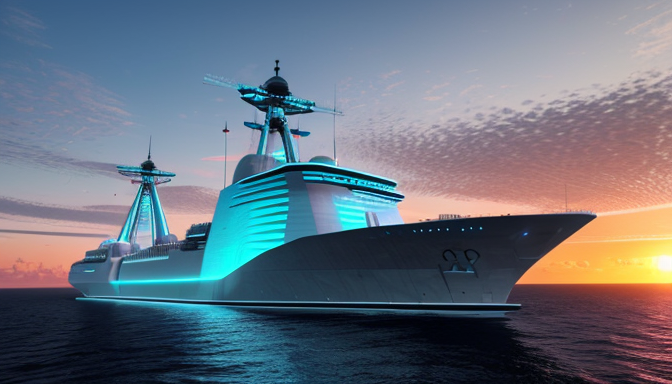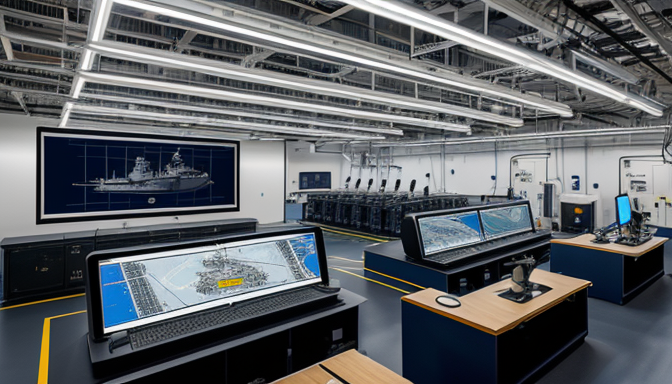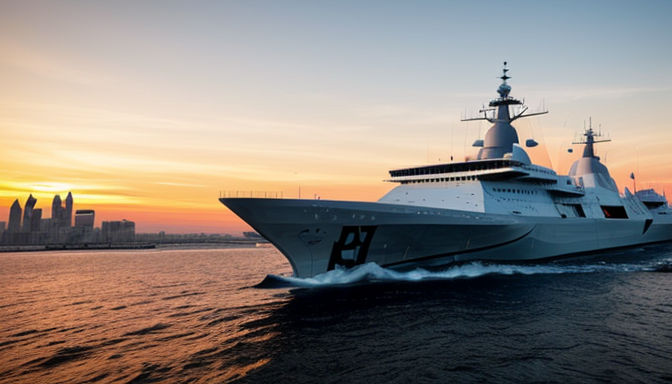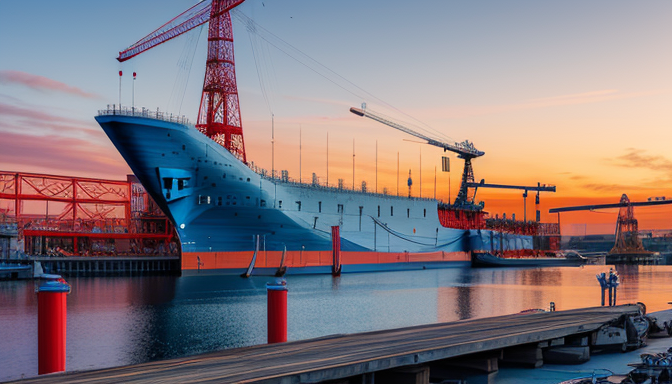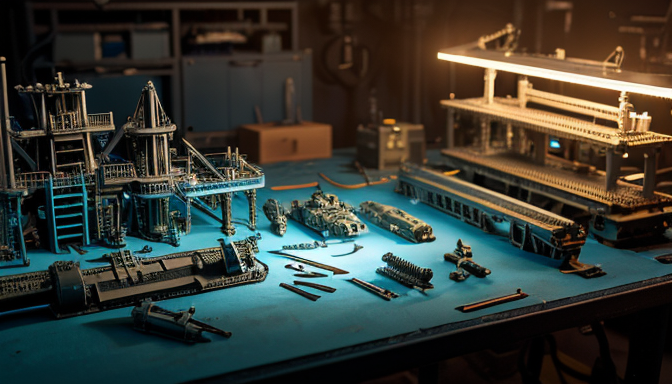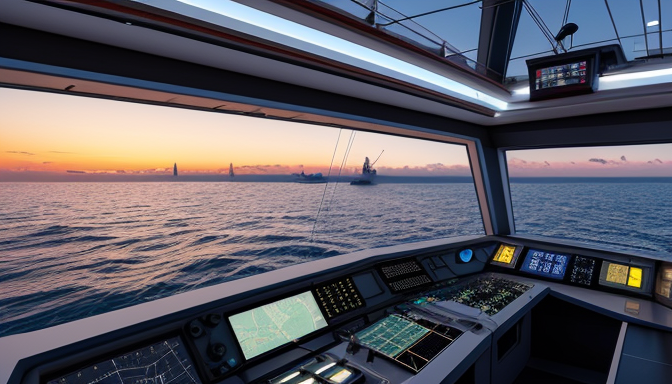How Naval Technology is Transforming Global Trade
In the ever-evolving landscape of global trade, naval technology stands at the forefront, revolutionizing how we transport goods across the seas. Imagine a world where ships are not only faster but also smarter, equipped with cutting-edge designs that enhance both performance and safety. This transformation is not just a dream; it’s happening right now! With advancements in ship design, we are witnessing vessels that can navigate treacherous waters with unprecedented ease, ensuring that products reach their destinations on time.
Moreover, the introduction of green propulsion systems is a game-changer. As environmental concerns rise, the maritime industry is embracing sustainable practices that significantly reduce carbon footprints. These eco-friendly technologies, such as hybrid engines and wind-assisted propulsion, are not merely trends; they are essential for the future of our oceans and the sustainability of global trade routes. By adopting such innovations, shipping companies can not only cut costs but also appeal to a growing base of environmentally conscious consumers.
Additionally, let’s not forget the incredible marine innovations that are enhancing safety and efficiency. From advanced navigation systems to real-time data analytics, these technologies are like having a GPS for your cargo, ensuring that every shipment is tracked and managed seamlessly. As we embrace these changes, the maritime industry is set to become more resilient, agile, and prepared for the challenges of tomorrow. So, are you ready to sail into the future of global trade?
Innovations in Shipping Technology
In the ever-evolving landscape of global trade, are nothing short of revolutionary. Imagine a world where ships are not just vessels, but smart entities that communicate with each other and with port systems in real-time. This is no longer a distant dream; it’s happening now! Cutting-edge ship designs are being developed with aerodynamics in mind, allowing vessels to glide through water with minimal resistance, much like a bird soaring through the sky.
One of the most exciting advancements is the integration of green propulsion systems. These systems utilize renewable energy sources, such as wind and solar power, drastically reducing the carbon footprint of maritime operations. For instance, hybrid ships that combine traditional fuel with electric power are becoming more common, leading to significant cost savings and environmental benefits. Did you know? These innovations can cut fuel consumption by up to 30%, which not only saves money but also helps protect our planet.
Moreover, the use of automation and artificial intelligence is transforming how goods are transported. From automated cargo handling at ports to AI-driven navigation systems that optimize routes based on weather patterns and sea conditions, these technologies are enhancing efficiency and safety. In fact, many shipping companies are now investing heavily in smart shipping solutions, which promise to streamline operations and improve delivery times.
Overall, the future of shipping technology is bright, with innovations that not only bolster efficiency but also contribute to a sustainable and secure global trade environment. As we continue to embrace these advancements, the maritime industry is poised for a transformation that will benefit businesses and consumers alike.
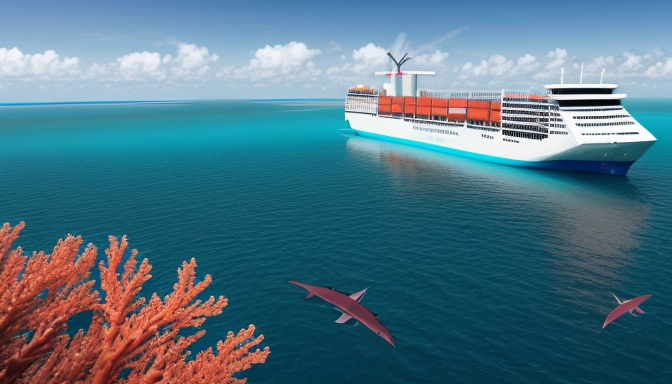
Sustainability in Maritime Operations
In today’s world, where climate change looms large, the maritime industry is stepping up to the plate with innovative solutions that not only enhance efficiency but also protect our planet. Imagine a fleet of ships that not only transport goods but do so with minimal environmental impact. This is the vision that cutting-edge ship design and green propulsion systems are making a reality.
Modern vessels are now being equipped with eco-friendly technologies that significantly reduce emissions and fuel consumption. For instance, the adoption of liquefied natural gas (LNG) as a fuel source is becoming more prevalent, as it emits fewer pollutants compared to traditional fuels. Additionally, advancements in hull design are optimizing the hydrodynamics of ships, allowing them to glide through water with less resistance, thus conserving energy.
Moreover, marine innovations like wind-assisted propulsion systems are gaining traction. These systems harness the power of the wind to supplement engine power, which not only cuts down on fuel costs but also minimizes the carbon footprint of maritime operations. It’s akin to sailing into the future, where nature and technology work hand in hand.
As we embrace these sustainable practices, the maritime industry can pave the way for a greener future. By investing in research and development of sustainable technologies, we can ensure the long-term viability of global trade routes while safeguarding our oceans. After all, a healthy ocean means a thriving economy, and that’s a win-win for everyone!
Frequently Asked Questions
- What are the latest innovations in naval technology?
The latest innovations include automation, artificial intelligence, and advanced navigation systems. These technologies are making shipping faster, safer, and more efficient, allowing businesses to save costs and deliver goods more reliably.
- How is sustainability being addressed in maritime operations?
Sustainability in maritime operations is being tackled through eco-friendly shipping practices, such as using cleaner fuels, optimizing routes to reduce emissions, and investing in renewable energy sources for ships. These efforts are crucial for protecting our oceans and ensuring the longevity of trade routes.
- What impact does naval technology have on global trade?
Naval technology significantly enhances global trade by improving the efficiency of supply chains, reducing shipping times, and lowering costs. This means that businesses can meet consumer demands more effectively, leading to a more dynamic and responsive market.
- Are there any security concerns with new shipping technologies?
Yes, while advancements in technology improve efficiency, they also introduce new security challenges, such as cyber threats. Companies are now prioritizing cybersecurity measures to protect their vessels and data from potential attacks.

